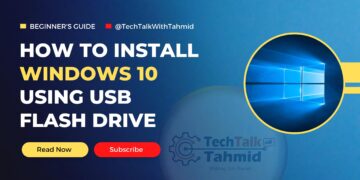The landscape of personal computing is undergoing a seismic shift, driven by the relentless march of artificial intelligence. Forget mere cloud-based AI; the tech industry’s most intense battle is now raging over the very definition and delivery of the “AI PC.” This isn’t just about faster processors or sleeker designs; it’s about fundamentally re-architecting the laptop to integrate powerful on-device intelligence directly into its core. Every major chipmaker, software giant, and PC manufacturer is vying for supremacy, pouring billions into research and development to claim their stake in what promises to be the next transformative era of personal computing. This fierce competition is poised to redefine productivity, creativity, and daily interaction with our most essential devices.
The dawn of on-device intelligence
For years, artificial intelligence primarily resided in the cloud, processing complex tasks on remote servers before delivering results to our devices. While powerful, this approach carried inherent limitations: latency, reliance on internet connectivity, privacy concerns, and recurring costs. The “AI PC” emerges as the answer, championing the integration of specialized hardware, primarily Neural Processing Units (NPUs), directly into the laptop’s silicon. An NPU is a dedicated accelerator designed to handle AI workloads with remarkable efficiency, consuming less power than a traditional CPU or GPU for these specific tasks. This shift enables real-time AI capabilities, from advanced noise cancellation in video calls and sophisticated photo editing filters to hyper-personalized digital assistants and even locally run large language models, all without a constant internet connection. It marks a pivotal move towards more autonomous, private, and responsive personal computing, unlocking a new frontier of applications that demand immediate, on-device processing.
The key players and their strategic thrusts
The race to dominate the AI PC market is a multi-front war involving titans of the tech world. Intel, a long-time CPU leader, has introduced its Core Ultra processors with integrated NPUs (e.g., in Meteor Lake and Lunar Lake) aiming to deliver mainstream AI acceleration. AMD is countering with its Ryzen AI processors, also featuring dedicated AI engines, focusing on performance for creative and professional users. Qualcomm, traditionally strong in mobile, is making a formidable push into Windows PCs with its Snapdragon X Elite and Plus chips, boasting highly efficient NPUs designed for always-on, long-battery-life experiences, backed by Microsoft’s Copilot+ PC initiative. Apple, a pioneer in on-device AI with its M-series chips and their integrated Neural Engine, continues to leverage its tightly integrated hardware and software ecosystem to deliver optimized AI experiences across its Mac lineup. Each player is not just competing on raw NPU power but also on developer ecosystems, software integration, and strategic partnerships, understanding that the true value of an AI PC lies in the applications it enables.
| Manufacturer | Chip Series | Typical NPU TOPS (Tera Operations Per Second) | Key Focus |
|---|---|---|---|
| Intel | Core Ultra (Meteor Lake/Lunar Lake) | ~10-48+ | Mainstream laptop integration, broad software ecosystem support |
| AMD | Ryzen AI (Phoenix/Hawk Point) | ~16-50+ | High-performance computing, gaming, professional workloads |
| Qualcomm | Snapdragon X Elite/Plus | ~45-75+ | Power efficiency, always-on connectivity, long battery life |
| Apple | M-series (M1/M2/M3/M4) | ~11-38+ | Optimized hardware-software integration, creative applications |
Note: TOPS values are approximate and can vary based on specific chip configurations and benchmarks.
Transformative applications and lingering challenges
The promise of the AI PC extends far beyond simple performance boosts. It unlocks a new generation of user experiences: think real-time transcription and translation during video calls, advanced photo and video editing capabilities that apply complex effects instantly, highly intelligent personal assistants that anticipate needs, and enhanced security features that adapt to user behavior. Developers are gaining access to new tools and APIs to build AI-powered applications that run seamlessly on devices, fostering innovation across productivity, creativity, gaming, and accessibility. However, the path isn’t without hurdles. Standardizing AI frameworks across different hardware architectures remains a significant challenge. Educating consumers on the tangible benefits of an AI PC beyond marketing hype is crucial. Furthermore, ensuring that these powerful new capabilities do not compromise user privacy, even as AI moves on-device, will be paramount. The success of the AI PC hinges not just on raw processing power, but on the compelling, secure, and intuitive applications it can run.
The future landscape of personal computing
The fierce competition to define the AI PC is laying the groundwork for the next major evolution in personal computing. As NPUs become standard components in laptops, we will see a rapid acceleration in AI-powered features, moving beyond niche applications to become foundational elements of the operating system itself. Expect operating systems like Windows and macOS to be deeply intertwined with AI capabilities, offering more intuitive interfaces and proactive assistance. This shift will likely redefine what constitutes a “premium” laptop, pushing manufacturers to innovate not just on raw specs but on integrated AI experiences. The ripple effect will extend to software developers, who will increasingly design applications that leverage on-device AI for enhanced performance, privacy, and responsiveness. Ultimately, the AI PC is not just a temporary trend but a fundamental re-imagining of our digital companions, promising a future where our devices are not just tools, but intelligent partners.
The battle for the AI PC is undeniably the tech world’s most significant current conflict, a high-stakes race where innovation is the ultimate currency. From Intel’s pervasive integration to Qualcomm’s efficiency dominance and Apple’s seamless ecosystem, every major player is investing heavily to shape the future of personal computing. This widespread effort to embed powerful on-device intelligence promises a new era of laptops that are more responsive, private, and capable than ever before. While challenges like standardization and user adoption remain, the trajectory is clear: the AI PC is set to redefine our interactions with technology, moving AI from the cloud to our fingertips. This foundational shift will not only unlock unprecedented productivity and creativity but also reshape the very fabric of the tech industry for decades to come, ushering in a truly intelligent computing experience for everyone.



















